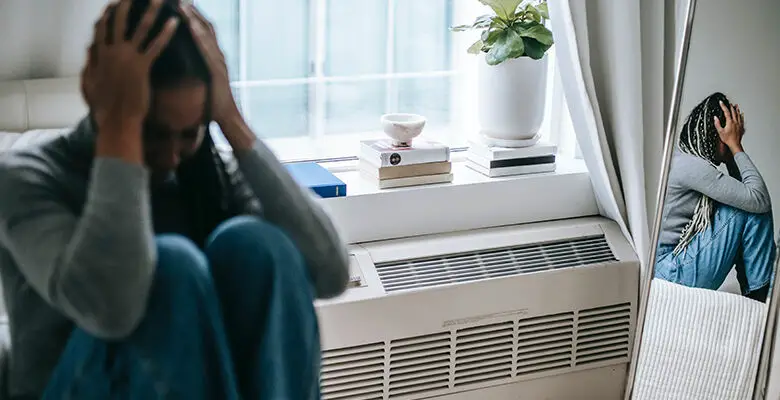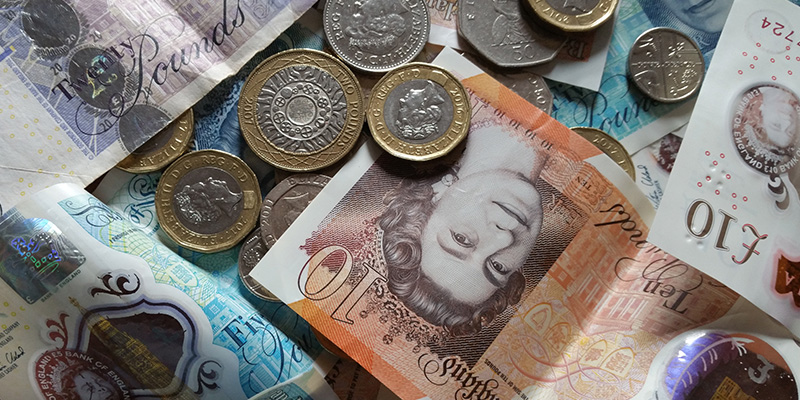
The cost of living crisis: disabled people’s stories
With the recent announcement of the energy price cap increasing from £1,971 to £3,549 for a typical UK household and our new Prime Minister being revealed next week, this is an exceptionally worrying time for many, particularly if you have a disability, something that already raises the cost of living considerably.
Our writer Raya Al-Jadir has spoken to disabled people about the real impact of rising prices on their everyday lives. Her findings were stark and deeply concerning.
Some might say that the UK is facing one of its most testing times in modern history – Brexit, the Covid-19 pandemic, and now the cost of living crisis.
Sadly, with each of these disasters, disabled people have often been the ones hit hardest. Brexit meant that some medications suddenly vanished from pharmacies and there were carer shortages.
When Covid-19 struck, many disabled people felt that their lives didn’t matter, with so many being asked to sign a ‘Do Not Resuscitate’ notice. Then, when lockdown ended and things began opening back up, so many restrictions were lifted that those still at risk didn’t feel safe and felt forced to continue shielding.
Now, with energy and food prices reaching an all-time high, it is disabled people, many of whom are on low incomes, who will likely pay the highest price.
Yet the UK is also undergoing a big change in its political sphere, as in less than one week we will have a new Prime minister. But the question remains – will anything change for disabled people?
The first indication suggests that both candidates are clueless when it comes to disability issues. After a campaign that has almost completely ignored questions around disability, it appears that neither Liz Truss or Rishi Sunak plan to introduce a policy that would obviously improve the lives of disabled people.
Life costs more for disabled people and their families, spending increased amounts on essential goods and services, such as heating, insurance, equipment and therapies.
Cost of living for disabled people
These extra costs mean disabled people have less money in their pockets than non-disabled people, or they go without. The result is that disabled people are more likely to have a lower standard of living, even when they earn the same amount.
Disabled people are caught in the middle of the current cost of living storm. Inflation is predicted to hit 10% later in the year, as energy bills rocket and food prices shoot up. But this is on top of the extra costs that many disabled people already face.
Energy for powering essential equipment, such as hoists, beds, breathing equipment, powered chairs and monitors, was already expensive. These are not optional extras that can be cut back. They are vital, often life-saving, equipment.
Figures from the Office for National Statistics (ONS) show how disabled people in Britain are being hit even harder by rising prices than non-disabled people.
They highlight that many disabled people are being forced to take drastic action to stay afloat, even before further expected price rises this autumn, including steep increases in fuel costs. The ONS statistics reveal that:
- 42% of disabled adults are spending less on food and other essentials, compared with 31% of non-disabled people, because of the rise in the cost of living.
- Almost half of disabled people (48%) said they bought less food in the last fortnight, against 38% of non-disabled people.
- 13% of disabled people said it was already “very difficult” to pay those bills and 38% said it was “somewhat difficult”, compared with 6% and 29% of non-disabled bill-payers.
- 46% of disabled people are cutting back on non-essential journeys in their own vehicle, against 40% of non-disabled people; and 55% are using less fuel in their home, against 50% of non-disabled people.
- 23% of disabled people have had to borrow more money or use more credit than usual in the last month, compared to a year ago, against 17% of non-disabled people.
- When asked if their household would be able to afford to pay an unexpected but necessary expense of £850, only 49% of disabled people said they could, compared with 64% of non-disabled people.
The analysis is based on answers from nearly 14,000 adults questioned between late March and mid-June 2022.
Here at Disability Horizons, we spoke with a few disabled people about how the cost of living crisis will impact them.

Disabled people already struggling
Helen, who has a Motability car as the nearest bus stop to her is 1km away, used to enjoy the freedom of getting in her car with her dog and going somewhere, whether it a favourite park, the beach, a coffee shop or to the gym.
She never thought the day would come when each outing had to be analysed and scrutinised before taking it. “Now I do none of this. I only make essential journeys and make my trips pay for themselves so if I have a hospital appointment I will tie that in with going for groceries or going to get my hair done or running other errands.”
Helen has had to cancel hospital appointments on two occasions because she was unable to afford to put petrol in her car and getting a taxi is beyond her financial means and public transport would take hours.
Helen’s car is essential to maintaining her wellbeing. Speaking to us, she said that she misses going out and this has started to impact her mental wellbeing.
“I am becoming a prisoner in my home again but instead of it being caused by my PTSD and chronic pain, it is being caused by the rise in cost of fuel leaving me in fuel poverty”.
Helen believes that people in receipt of Personal Independent Payments/Disability Living Allowance (PIP/DLA) mobility higher payments should be allowed to buy fuel VAT free because “without our cars we are prisoners”.
Another person, who asked to remain anonymous, has been disabled since the age of 14 and is a powered wheelchair user, which needs to be charged every night. It costs more to charge a wheelchair than using a dishwasher. They also have to have the heating on to keep warm because of their condition.
They said: “It is quite normal to have my heating on if the temperature is below 19 degrees. However, the cost of my utility bills has gone up three times since October 2021.”
The cost of rising fuel for wheelchair-accessible vehicle has also meant going out is a luxury that can’t be afforded, and the only way to cope is to stay home and order online to save on fuel for essential journeys.
Kimberley, who has intestinal failure and uses a wheelchair, said: “Disability comes with a lot of essential equipment, much of which requires electricity”.
She relies on parenteral nutrition and this has its own extra fridge. She also needs electricity for her feeding pump, as well as her adjustable bed, hoist and wheelchair.
Kimberley explains that “None of these things are things I can choose to do without to save electricity.”
Although Kimberley is appreciative of the help from recent government grants for energy costs, it doesn’t cover the amount of extra expenditure.
Kimberly also has to buy pre-packaged and vegan meals because of her condition. “I can’t prepare food myself, so have to buy things pre-prepared. I also can’t eat dairy so end up buying from vegan ranges.”

Food prices are going up and up, but there are no cheap alternative options when your diet is restricted by your condition.
Kimberley admits that she is ‘lucky’ in that she has a lot of her nutrition prescribed, so she can go without to an extent, but it’s still hard.
“After [paying for] food and energy, which aren’t really optional, it leaves less and less for anything else, including other medical expenses, of which there are many, so things like going out, are no longer an option.
It’s definitely getting harder. I feel like pre-disability I had more options available to be to make my money go further but now those options are more limited”.
Marion is paralysed from the chest down and has a permanent tracheostomy after falling down the stairs more than 10 years ago and breaking her neck at C6/7.
One of her biggest problems is her inability to control her body temperature, which means her energy use is high. “I have to keep our heating on 26 degrees in the house at all times because when I get cold it is difficult for my body to regain its temperature.”
Marion also has to have a nurse and a carer 24/7 live with her and her husband, meaning extra costs. She and her husband are in their 70s and don’t work.
“I do get PIP and our state pension, and I get a private pension. But we have no way of making additional money when the cost of living increases.”
Marion is at a loss of what to do, “Everything is increasing – food, fuel, council tax, energy, water, etc. All I can do is try and cut back, but we don’t know what on? So how are we supposed to manage with the rising costs? What’s next?”
This is sadly the predicament for many disabled people, making hard choices, resorting to using food banks and even compromising their health.
Things can’t stay as they are and something must change. We need a new plan of action, one that includes disabled people.
By Raya Al-Jadir
If you’re worried about your energy costs, visit the Ofgem website for advice and ways to get help.
There are also a number of Government grants you can see if you’re eligible for, and you might want to register with the Priority Services Register, a free support service to help people in vulnerable situations.
If the price increases are impacting your mental health, there are a number of services and organisations offering help: Samaritans, Mind and Mental Health Foundation.